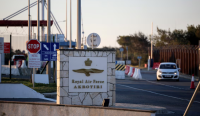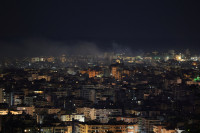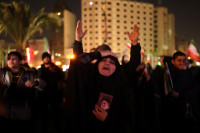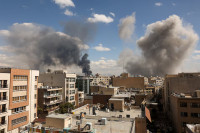World
Russia seeks calm after aborted mutiny, West sees cracks in Putin’s power
Confusion over the weekend’s extraordinary events has left governments, both friendly and hostile to Russia, groping for answers to what could happen next in the country with the world’s largest nuclear arsenal.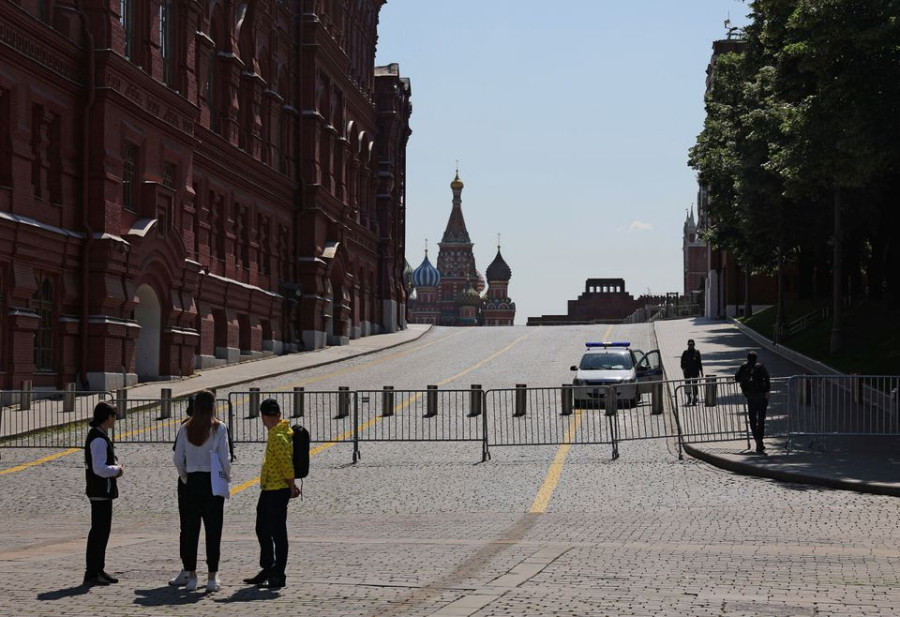
Reuters
Russia sought to restore calm on Monday after an aborted mutiny by Wagner Group mercenaries over the weekend, while Western allies assessed how President Vladimir Putin might reassert authority and what it could mean for the war in Ukraine.
Ending their short-lived mutiny, Wagner fighters halted their rapid advance on Moscow, withdrew from the southern Russian city of Rostov and headed back to their bases late on Saturday under a deal that guaranteed their safety.
Their commander, Yevgeny Prigozhin, would move to Belarus under the deal mediated by Belarusian President Alexander Lukashenko.Monday has been declared a non-working day in Moscow to allow time for things to settle, and there was little evidence of increased security in the capital on Sunday evening.
Defence Minister Sergei Shoigu, one of the main targets of Prigozhin’s anger, visited Russian troops involved in the military operation in Ukraine, state-run RIA news agency reported on Monday while providing no details on when and where.
But Putin, who has held power for more than two decades, has still to comment publicly since the de-escalation of one of the biggest challenges to his rule.
Confusion over the weekend’s extraordinary events has left governments, both friendly and hostile to Russia, groping for answers to what could happen next in the country with the world’s largest nuclear arsenal.
US Secretary of State Antony Blinken suggested the turmoil could take months to play out.
“We’ve seen more cracks emerge in the Russian facade,” Blinken told NBC’s “Meet the Press” programme on Sunday.
Russia’s Deputy Foreign Minister Andrei Rudenko held talks in Beijing on Sunday. It was unclear if his visit to Russia’s strongest ally was precipitated by the Wagner mutiny.
“The Chinese side expressed support for the efforts of the leadership of the Russian Federation to stabilise the situation in the country in connection with the events of June 24 and confirmed its interest in strengthening the cohesion and further prosperity of Russia,” the Russian foreign ministry said.
The response from China was characteristically measured. It vouched support for Russia’s efforts to maintain national stability, referring to the tension as Russia’s “internal affairs”.
Ukrainian President Volodymyr Zelenskiy discussed the events in Russia in separate phone calls with US President Joe Biden and Canadian Prime Minister Justin Trudeau.
Biden and Trudeau both expressed support of Ukraine as it pursues a counteroffensive to recover territory seized by Russia, according to official statements.
“The world must put pressure on Russia until international order is restored,” Zelenskiy said on Twitter.
State television said Putin would attend a meeting of Russia’s Security Council this week, without elaborating, and Belarus’ Belta news agency said Putin and Lukashenko spoke again on Sunday, after at least two calls on Saturday.
In a televised address as events were unfolding on Saturday, Putin said the rebellion put Russia’s very existence under threat, vowing to punish those behind the revolt and drawing parallels with the chaos of 1917 that led to the Bolshevik revolution.
“The myth of the unity of Putin’s Russia is over ... It’s the inevitable outcome when you support and finance a legion of mercenaries,” Italy’s Foreign Minister Antonio Tajani was quoted as saying by Italian newspaper Il Messaggero.
Prigozhin’s whereabouts unknown
Under the deal, brokered late on Saturday, Kremlin spokesman Dmitry Peskov said a criminal case against Prigozhin for armed mutiny would be dropped, Prigozhin would move to Belarus, and Wagner fighters who rallied to his cause would face no action, in recognition of their previous service to Russia.
Prigozhin, 62, was seen leaving the district military headquarters in Rostov late on Saturday in a sport utility vehicle. His whereabouts since were not known.
A former Putin ally and ex-convict whose forces have fought the bloodiest battles of the 16-month war in Ukraine, Prigozhin said his decision to advance on Moscow was intended to remove corrupt and incompetent Russian commanders he blames for botching the war.
This month, Prigozhin defied orders to place his troops under Defence Ministry command. He launched the rebellion on Friday after alleging the military had killed some of his men in an air strike. The Defence Ministry denied this.
In excerpts from an interview aired by Russian state television on Sunday that appeared to have been recorded before the mutiny, Putin said he was giving top priority to the conflict in Ukraine.
Russia’s TASS news agency reported on Monday that 30 Ukrainian artillery position and 20 mortar crews had been suppressed in fighting near Lyman, a city in the Donetsk region. The Russian military, according to RIA, also denied Ukrainian claims to have made advances on the flanks of Bakhmut, the city that Wagner fighters helped Russia seize in May.
Giving its daily morning roundup on Monday, the General Staff of Ukraine’s Armed Forces said Russian forces had conducted unsuccessful operations around Bakhmut.
Ukrainian forces has reclaimed some 130 square km (50 square miles) along the southern front line since the beginning of their counteroffensive but there had been little significant change in the past week, Ukraine Deputy Defence Minister Hanna Maliar told the national broadcaster on Monday.
Serhiy Nayev, commander of Ukraine’s Joint Forces responded to speculative reports that Wagner fighters could be moved to Belarus to attack Ukraine from the north.
“If this happens and the enemy tries to cross the state border, it will be nothing but suicide for them,” Nayev said in a post on the military’s Telegram account.




 9.7°C Kathmandu
9.7°C Kathmandu
